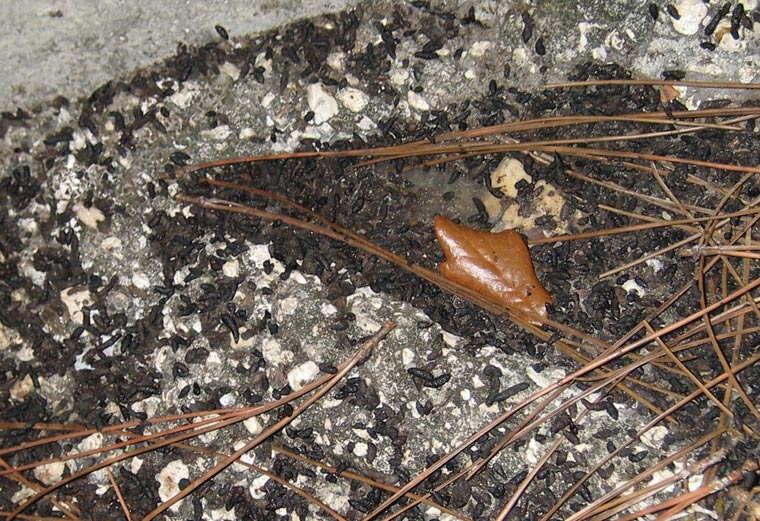-
info@aaanimalcontrol.com
Call us for help in your town
Humane Wildlife Education
Is wild animal feces dangerous to touch or breathe?
Need wildlife removal in your hometown? We service over 500 USA locations! Click here to hire us in your town and check prices - updated for year 2020.
There are a number of reasons why DIY animal removal or control is a bad idea, and just one of those reasons is how dangerous it can be. Not only are there threats associated with crawling around on the roof, something you’ll likely do if you think you have an infestation, but there are also disease threats present in the dead corpses of these animals, their nesting and bedding materials, and also their waste matter. In fact, we should talk about that a little more right now.

Wild animal feces is many things - smelly, unsightly, disgusting, and also rather dangerous. There are a number of diseases that can be passed on in the droppings of these wild critters, from parasites to viruses, bacteria, and everything else you could think of in between. To say that clearing up after these animals is a bit messy would be a massive understatement. In many cases you need rather specific bits of equipment in order to get the job done safely and properly. A filter vacuum cleaner, for example, which is necessary to clear up bat guano. The droppings of these creatures can transmit a rather nasty disease called histoplasmosis, and when you sweep up the waste matter, you can send those disease spores airborne. You then breathe them in, as do the other people who live in your home, and your pets too. Most adults will recover without even realizing they have the disease present in their body, with an immune system strong enough to battle the disease. There will be people who do not have a strong immune system, however, and these people are especially vulnerable to the diseases that these wild animals can carry with them.
Raccoons are another animal with rather dangerous waste products. In fact, these masked critters are much more dangerous than you will have given them credit for, being a strong carrier of the rabies virus. And, just so you know, the rabies virus can lie dormant in these animals for a long time before it appears obvious. You can be bitten by an infected animal, and because the animal doesn't appear to be rabid, ignore the bite. The disease can lie dormant in your body for some time too, and unless you get urgent and immediate medical treatment, the outcome is almost always fatal.
As well as rabies, raccoons carry and transmit the roundworm parasite, and the eggs are present in the droppings that the animal leaves behind. Many raccoons use latrines, which means their waste matter is going to be all in the same place. Although easier to clean up than when it is all over your home, these larger piles of scat, or droppings, can often make life much more dangerous. The more scat there is, the more disease threats are present. You will also find that many raccoons will use the same latrines, and sometimes other animals, such as foxes, can join the party too. When this happens, you have a much greater risk of spreading disease. You will have a much higher chance of coming across a diseased animal when you increase the overall amount of animals you accidentally and indirectly come into contact with.
Wild animal feces is dangerous to touch and breathe, and some animals will have more dangerous feces and urine than others. You don’t know the risks by just looking at the poop in front of you, and you must proceed with extreme caution whenever you are cleaning up the waste matter of any wild animal. It might be best to leave it to the professionals.
For more information, you may want to click on one of these guides that I wrote:
How To Guide: Who should I hire? - What questions to ask, to look for, who NOT to hire.
How To Guide: do it yourself! - Advice on saving money by doing wildlife removal yourself.
Guide: How much does wildlife removal cost? - Analysis of wildlife control prices.
animals in the attic
noises in the attic


















